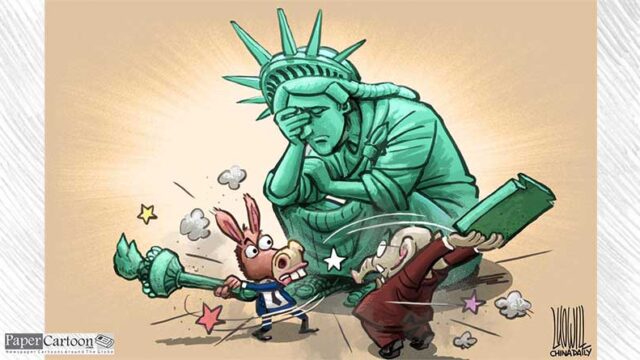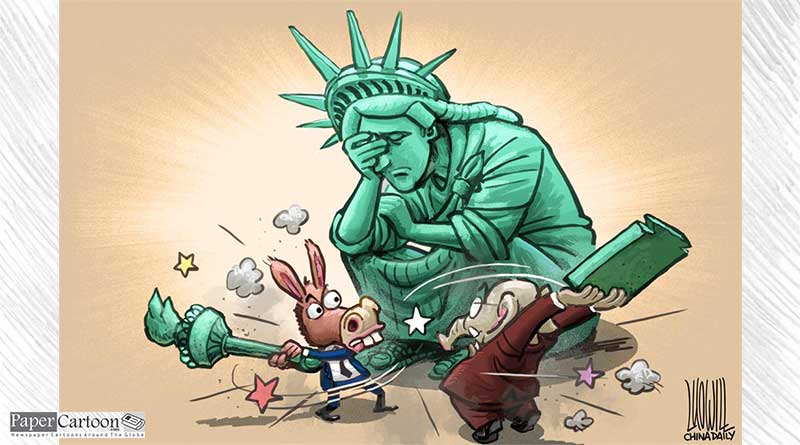
Since it became an independent nation on July 4, 1776, the U.S. has grown into a serious country. Deep down, however, many of us think we know better and have harbored the fantasy that it is, in fact, a light-hearted, funny and humorous society. It turns out this might be where the real political schism in our country lies. Half of us believing that being the United States is serious business and that we should lead and take care of the world. The other half thinking such grandiosity is a joke and we should worry only about ourselves. And that we should enjoy what we have without sharing it with anyone else. Unfortunately, the “anyone else” usually means people of color. And since there are growing numbers of us here, that would exclude an awful lot of folks.
The U.S. earned much of the esteem and respect it received when it led on issues facing the world over the last few centuries. That respect sometimes flowed because of the country’s richness and power. On the positive side, during the 20th century the U.S. overcame the Great Depression; it led the world in turning back the Nazi war machine; and, it defeated the spread of communism. Throughout the course of that century, its citizens were succeeding as space explorers, medical pioneers, and cultural leaders. The path to superpower prominence reflected the strength and optimism of those citizens. Curiously, in the beginning of the 21st century, U.S. society seems to have lost its way. It lost a culture war; it decided that the Presidency and its institutions were a joke; and it ignored the worst pandemic in history by ignoring science. As a result, more than a quarter million citizens were lost. This abbreviated history of the last two centuries reflects the split-mind version of America: a serious country vs. a joke. It is no wonder that we are, at this moment, feeling uncertain, anxious, lost, and depressed!
The choice of Donald Trump as President in 2016 was a repudiation of the seriousness, respect, and leadership the country had developed over its history. His victory reflected the idea that ordinary citizens were choosing disruption of the status quo; having the desire to administer an electroconvulsive shock to the political system; giving the metaphorical middle finger to competent bureaucrats; and a longing to “clean up the swamp” of those who made the system work. Trump’s mission, incompetently carried out, only created more turmoil. The chaos that ensued unmasked the fact that while governing can make everyone frustrated, it does require experience and expertise.
More voters recognized that truism in 2020, and following Biden’s victory, there is a sense of lightness, of a weight being lifted, and of a new optimism about the future. This despite still being in the middle of the deadly COVID-19 pandemic. The country literally experienced an enormous sigh of relief! Along with several promising vaccines, there is the birth of a new tone in the presidency, one that values science and the well-being of others. It is a hopeful beginning. This may be an unfounded expectation since there are still leftover issues and unforeseen impediments as we say goodbye to 2020. Yet, I sense that the serious part of America is now ascendant. But we won’t really know that until the new year is fully underway. In the meantime, I’ll take whatever joy I feel.


